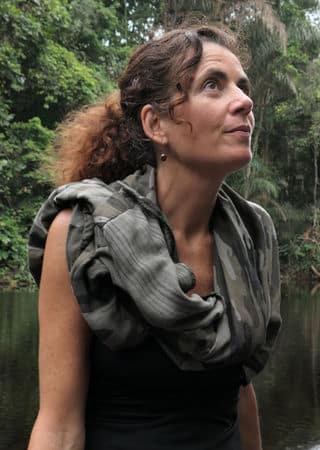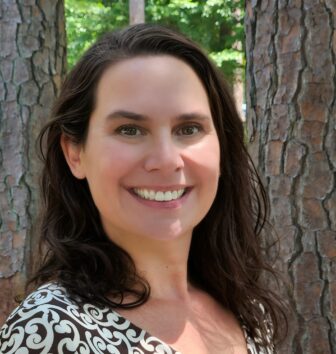A Renewed Chapter for Ekolo
In the aftermath of the crisis in 2023, Ekolo ya Bonobo Community Reserve has more than recovered, it has been fortified. With rebuilt infrastructure, strengthened patrols, and deepened commitment from and with our community partnerships, the reserve continues to expand and to serve as a model of successful community-based conservation and a safe haven for bonobos and the extraordinary biodiversity of the Congo Basin.
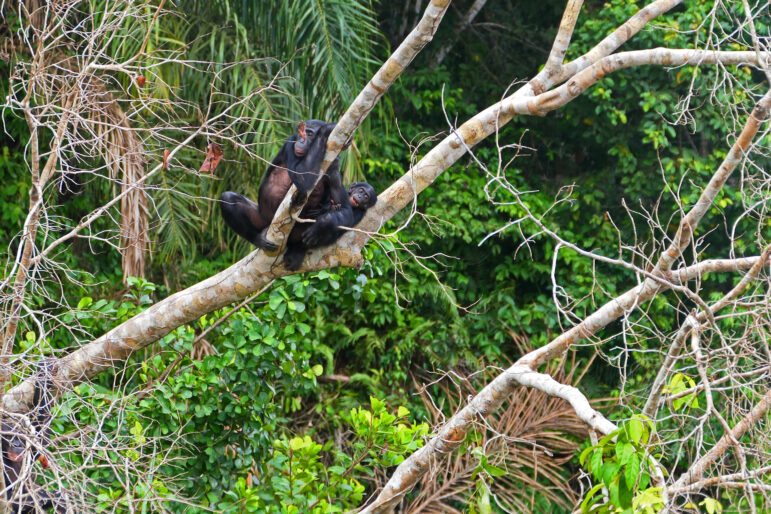
Safeguarding an Irreplaceable Rainforest
The Congo Basin is the second-largest rainforest in the world and one of the most biologically rich places on Earth. It is home to thousands of plant and animal species found nowhere else.
Ekolo ya Bonobo Community Reserve protects a vital part of this vast ecosystem. Led by expert biologists, our teams are the first to conduct in depth studies of this region. Apart from Ekolo, The forest has been little studied, and much of the wildlife remains unknown. Our biodiversity surveys have identified approximately 30 medium and large mammal species, some of them endangered, like bonobos. We know this is just the beginning of understanding the reserve’s biodiversity.
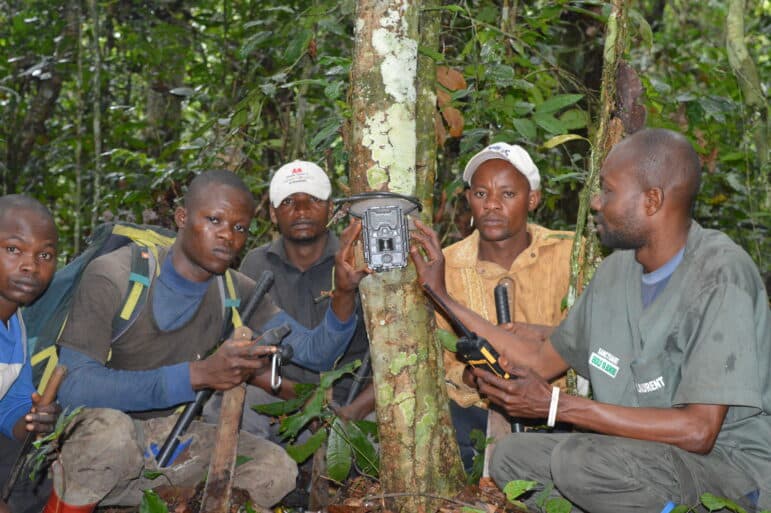
By protecting bonobos, Ekolo safeguards the forest they help sustain, along with the countless plants and animals, both discovered and yet to be discovered, that depend on it.
Impact Snapshot
- 120,000 acres of protected rainforest
- Only bonobo rewilding reserve in the world
- Home to varied and little-known animal species and countless plant species
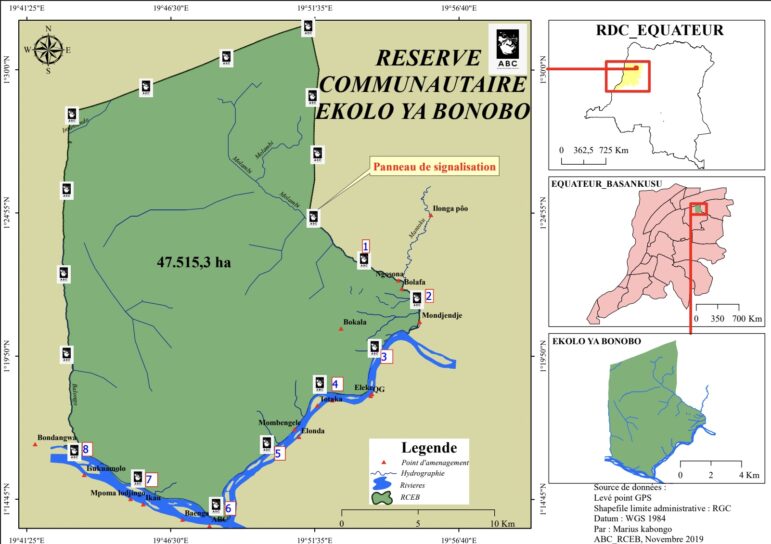
The Journey from Rescue to the Wild
Most of the bonobos at Ekolo began their journey at Lola ya Bonobo Sanctuary after being rescued from the illegal wildlife trade. At Lola, orphaned bonobos nurtured by expert caregivers and surrogate mamas learn to live in a family group once again.
At the right developmental stage, they leave their human caregivers and join bonobo groups in Lola’s three semi-wild enclosures. When they are ready, they are transferred to Ekolo in carefully selected and monitored groups.
Due to our team’s brilliantly successful rehabilitation process our re-wild bonobos have demonstrated the vital skills for their survival back in the wild. They have adapted to:
- Foraging for wild foods
- Building night nests
- Navigating their forest environment
- Forming strong social bonds essential for group stability
- Procreating and successfully raising their young in the wild
The slow and deliberate rehabilitation and re-wilding process gives each bonobo the best chance for a long, healthy life in the wild.
And, so far, 10 bonobo babies have already been born into the wild at Ekolo ya Bonobo Community Reserve! This is a monumental milestone in rehabilitation that has only achieved by our team in the DRC.
Building Conservation Through Community
Ekolo’s success depends on the trust and participation of surrounding communities. Through conservation agreements, local radio broadcasts, school programs, and open community meetings, residents are actively involved in protecting their shared natural heritage.
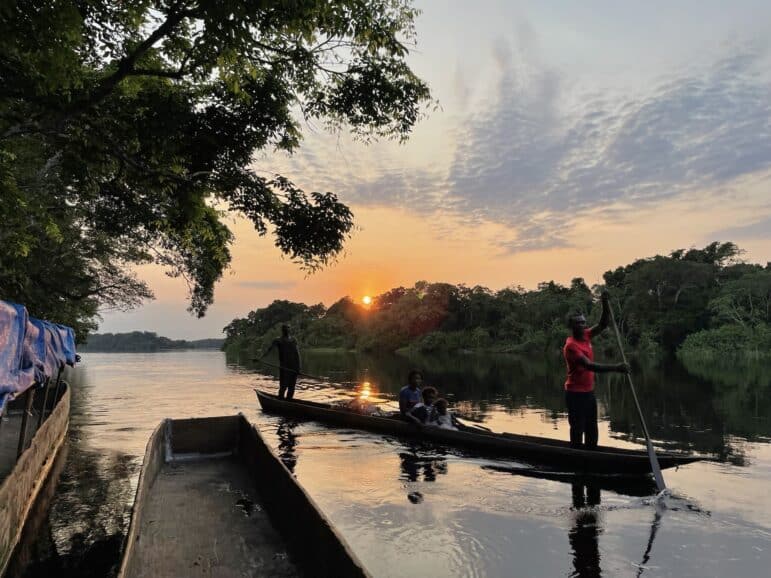
These partnerships:
- Create stable jobs in a region with few opportunities
- Strengthen environmental stewardship
- Improve quality of life through education and shared resources
- Ensure long-term protection for bonobos and their forest home
“We were fortunate as children to grow up and see many kinds of animals. We must do our best to ensure that our children have the same opportunity.”
-Faustin Iselo, Forest Guard at Ekolo ya Bonobo
Conservation That Supports People
In a country where 73.5 percent of Congolese people live on less than $2.15 a day, conservation jobs are life-changing.
- 50+ community members work as forest guards, trackers, cooks, logistics support and laborers, and biodiversity data collectors
- Forest guards receive training in ecology, wildlife tracking, and sustainable forest management
- Over 30,000 community members indirectly benefit from Ekolo’s conservation and education programs
Looking Ahead…
The progress at Ekolo ya Bonobo Community Reserve is proof of what’s possible when wildlife protection and community development work hand in hand. This Protected Area is not only serving as the only place in the world for re-wilding of endangered bonobos… it’s safeguarding an irreplaceable rainforest ecosystem and providing security for the local communities who have inhabited these forests for countless generations, and providing hope for future generations.
Join us in keeping Ekolo strong. Your support ensures that bonobos can return to the wild, forests remain intact, and communities have a chance to thrive.
Join the Bonobo Fellowship today to protect bonobos, preserve the rainforest, and support the people who make it possible.
Sources:
Democratic Republic of Congo Overview: Development news, research, data | World Bank
